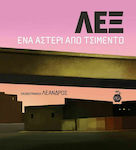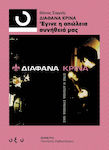Selected Store
Stock 1 piece
Skroutz Buyers Protection
Set the delivery location to see products according to your choice.
 AustriaEnglish
AustriaEnglish BelgiumEnglish
BelgiumEnglish BulgariaБългарски
BulgariaБългарски CroatiaEnglish
CroatiaEnglish CyprusΕλληνικά
CyprusΕλληνικά CzechiaEnglish
CzechiaEnglish EstoniaEnglish
EstoniaEnglish FinlandEnglish
FinlandEnglish FranceEnglish
FranceEnglish GermanyDeutsch
GermanyDeutsch GreeceΕλληνικά
GreeceΕλληνικά HungaryEnglish
HungaryEnglish IrelandEnglish
IrelandEnglish ItalyEnglish
ItalyEnglish LatviaEnglish
LatviaEnglish LithuaniaEnglish
LithuaniaEnglish LuxembourgEnglish
LuxembourgEnglish MaltaEnglish
MaltaEnglish NetherlandsEnglish
NetherlandsEnglish PolandEnglish
PolandEnglish PortugalEnglish
PortugalEnglish RomaniaRomână
RomaniaRomână SlovakiaEnglish
SlovakiaEnglish SloveniaEnglish
SloveniaEnglish SpainEnglish
SpainEnglish SwedenEnglish
SwedenEnglish
© 20[0-9]{2} Skroutz SA All Rights and Lefts reserved. FAQ | Terms of use | Privacy Policy | Cookie Policy

Selected Store
Stock 1 piece
Skroutz Buyers Protection


Educational Books

Art Books

Art Books










Prices are calculated for:Luxembourg, Other Payment Options
It has been 25 years since students took exams for admission to music studies departments at Greek universities for the first time. The special subjects at that time were "harmony" and "dictation of musical text" (dictee). Since then, many things have changed: new universities have been created with music as their subject of study in Corfu, Athens, and Thessaloniki, and the number of young men and women interested in studying music has multiplied. Also, since 2003, instead of the "dictation of musical text" subject, students are now examined in "music listening skills".
The role of this work is to contribute to the preparation of those who want to be admitted to the music studies departments of Greek universities. We clarify that this is not a harmony or music theory manual. However, we aim for this book to help increase the chances of success for candidates. And this can only happen if they already have a solid foundation in music education from music middle/high schools or music schools/conservatories they attended. Nevertheless, explanatory comments, annotations, and instructions accompanying each harmony topic and each test can play an important role in consolidating some basic music rules.
The work is divided into two parts. In the first part, we deal with harmony. Here you can find all the harmony topics of the exams from 1986 to 2010. We initially present them unsolved so that they can be copied onto a separate staff for solution. Then, the topics are presented solved. Of course, these are one of the "correct" solutions, as it is known that there are more than one correct harmonizations. Each topic solution is accompanied by observations and comments. The first part concludes with conclusions on dealing with problems in the harmony examination.
In the second part, we deal with the test of musical listening skills. Here you will find all the tests of musical listening skills from 2003 to 2010. Given that it was established as one of the special examination subjects relatively recently and therefore there is not enough experience, as is the case with the harmony subject, we considered that creating hypothetical tests would contribute to the proper preparation of candidates. Thus, after these 8 tests, we present 10 of our own tests based on the conditions set by the Ministry of Education, in which we followed a progressive level of difficulty. These tests, like the harmony topics, appear in two forms: the one that will be given to students for solution and the one of the solutions themselves, which also serve as the material for the teacher's execution.
Conclusions on dealing with problems in the test of musical listening skills follow. We promise our readers that in each subsequent edition, we will update the work with the new harmony and listening topics of the past period.
In order for the student to realize how exactly the tests of musical listening work and what "secrets" arise in the effort to recognize different intervals, chords, etc., this book is accompanied by two audio CDs. The first CD contains the performances of the 10 standard tests. We note its double usability: the teacher can "play" the CD to the students in the classroom or the students can solve the test on their own by listening to the CD at home.
Also, the professor can use the same test two or three times, selecting different answers each time. Thus, he will have 10 tests at his disposal, which with repetitions can provide material for 20 or 30 lessons. The second CD contains the actual execution of the 2005 music listening test and we believe that it can contribute significantly to the familiarization of candidates with examination conditions.
Among the useful tables of the work is the one of the admission bases to the four music universities of the country from 2000 to 2010.
The musical examples and texts were successively edited by: Melpo Bonatou, Eirini Tiniakou, and Dimitrios Doulias. I would like to warmly thank Kostas Papagrigoriou and Haris Naka for the trust they showed me.
(from the author's introduction note)
Specifications are collected from official manufacturer websites. Please verify the specifications before proceeding with your final purchase. If you notice any problem you can report it here.
Excellent book with detailed notes on the topics and rich in dictation exercises. However, there are one or two typographical errors in the dictations. My CDs have some kind of "snow" sometimes, but they do not make listening impossible